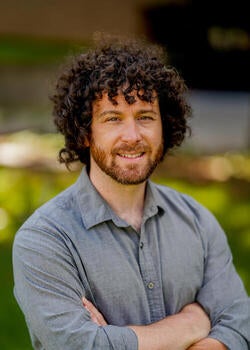
The new Math Undergraduate Group (MUG) was formed to bring a new focus on undergraduate teaching. It’s an innovation in the Faculty of Mathematics and helps deliver the kind of teaching and learning experience that is truly transformative for students. We caught up with Sean Speziale, the Director of MUG, to learn more.
Q: What is MUG and how does it fit within the Faculty of Mathematics?
MUG (Mathematics Undergraduate Group) is an organizational unit in the Faculty of Mathematics, but similarly to the Centre for Education in Mathematics and Computing (CEMC) we are not a department. We are a group of currently 13 dedicated lecturers. Our specialty is the education of students in post-secondary mathematics, and we aspire to be a hub for excellence in teaching, course design, and academic advising within the university community.
Q: What are some of the courses taught through MUG ?
MUG members teach a wide variety of Math core and service courses, but some of us also teach courses in departments such as CS. For example, in Fall 2023 term we will teach sections of: first- and second-year core algebra and calculus (both in person and online), first-year linear algebra and calculus for engineers, and calculus for sciences. In many cases, MUG members handle the course coordination duties for these multi-section courses.
Q: What are the connections between MUG and CEMC? Between MUG and the Math Teaching Fellow? Connections with other pedagogical initiatives in the Faculty?
Since CEMC like MUG is a group of lecturers, our members are often on teaching teams, sit on curriculum committees together, etc. and as such there are many strong bonds between the groups. MUG members also help with contest marking, volunteer for Math Circles and Key Clues.
A number of MUG members sit on committees with the Teaching Fellow such as the Enhancing Assessment Practices Committee, as well as participating in TA training and new instructor initiatives. Many in MUG spend time taking part in pedagogical research, and the Teaching Fellows (current and past) have been quite supportive of these activities through the Math Teaching Fund.
In terms of pedagogical initiatives, MUG members are directors of the Math Tutoring Centre, organizers of the Math Teaching Seminar, coordinators of Math Teaching Circles, and helped create and currently run the Graduate Student Teaching Seminar.
Q: How does MUG contribute to outstanding teaching and learning?
MUG members have attended and presented at teaching conferences, organized education sessions at conferences, written articles on teaching and education, and participated in various educational seminars and workshops. We have experts in online course design (including having developed and taught the first fully online calculus course at UW back in 2002), research best practices for new educational technologies, and use data to test effectiveness of digital assets. Members have authored course notes and even a textbook which is used at other universities, and one member created the Learning How to Learn Seminar Series at UW. Many of us are also involved in academic advising of our students.
All of these fine contributions are evidenced by the numerous awards that MUG members have accumulated over the past several years.
Q: What are some things you are hoping to accomplish as MUG’s new director?
I hope that one day in the not-too-distant future all members of MUG will move into the role of Continuing Lecturer (or Teaching Stream Professor), so I intend to help our definite-term contract members navigate that process. It is also my hope to increase the diversity of MUG by hiring qualified individuals who prioritize teaching excellence and who will bring in new perspectives and ideas that will help our group evolve. Finally, I would like to increase the visibility of MUG and help to establish MUG as a formal unit within the Faculty.
Q: What are some of the most exciting innovations in teaching and learning?
One of the most exciting innovations is the use of neuroscience to inform best practice in teaching and learning. We can use this research to aid in our pedagogical choices, and to understand where our students may be going wrong so that we can help to steer them toward a more successful path.